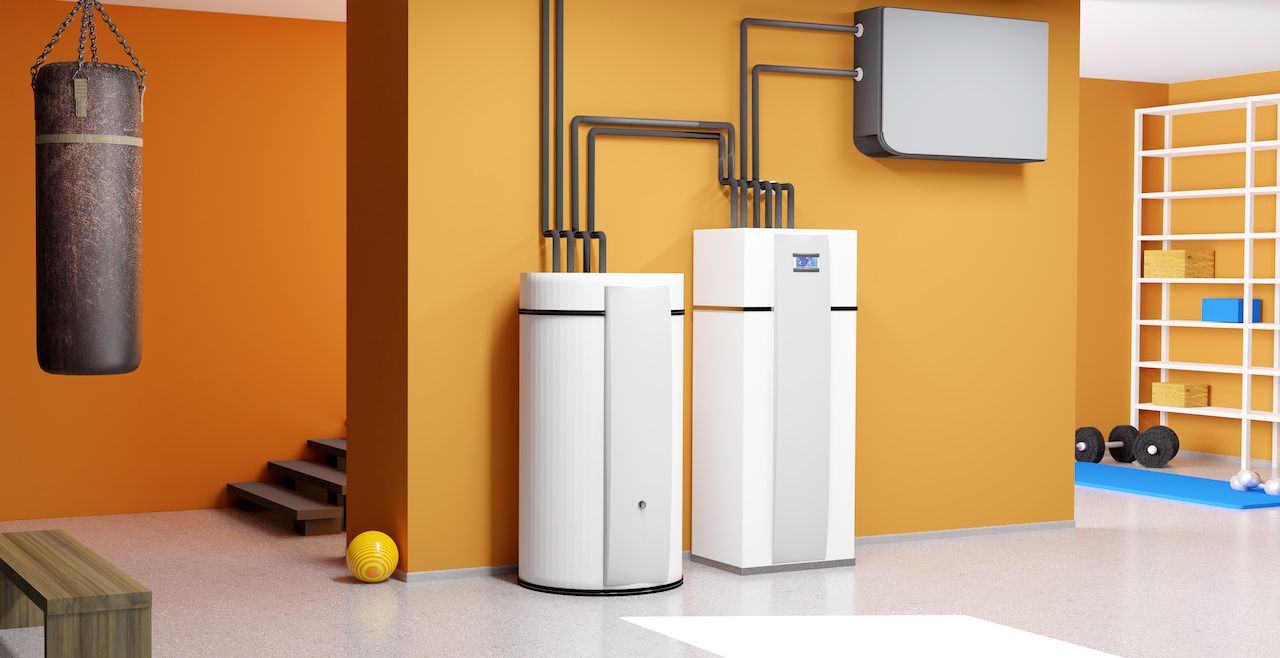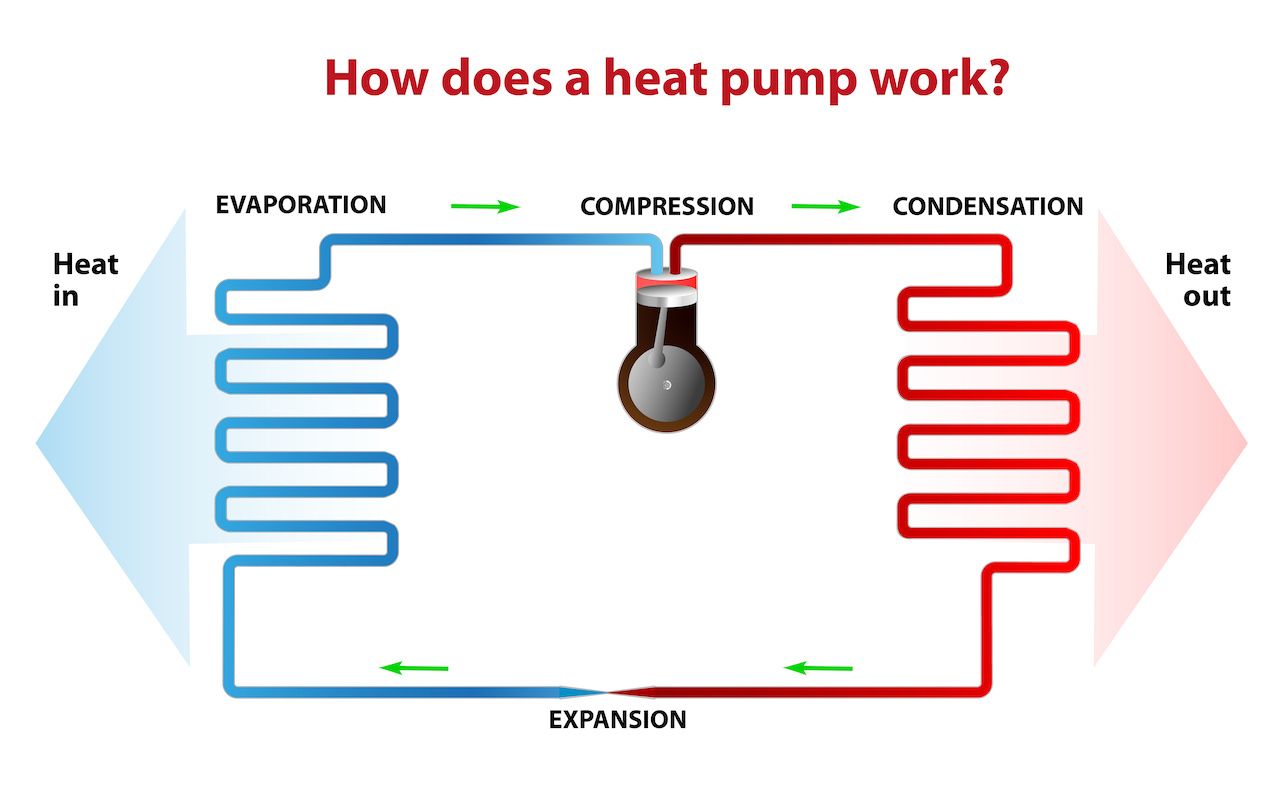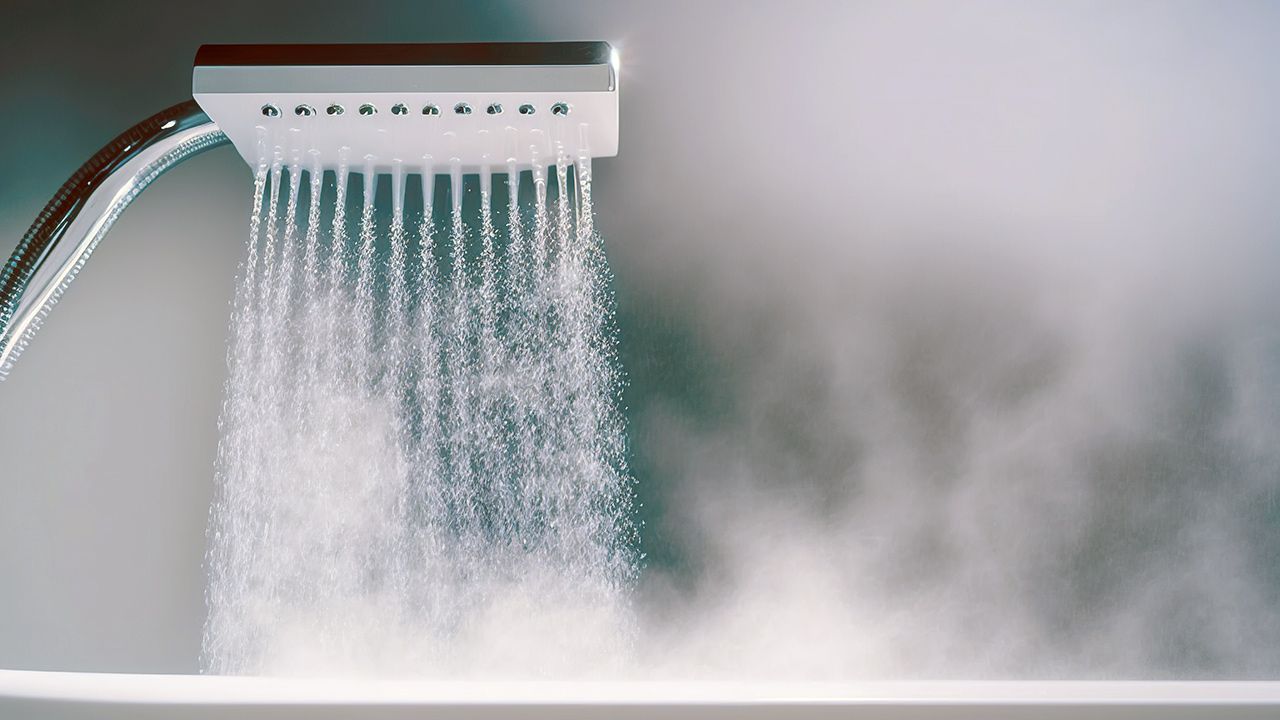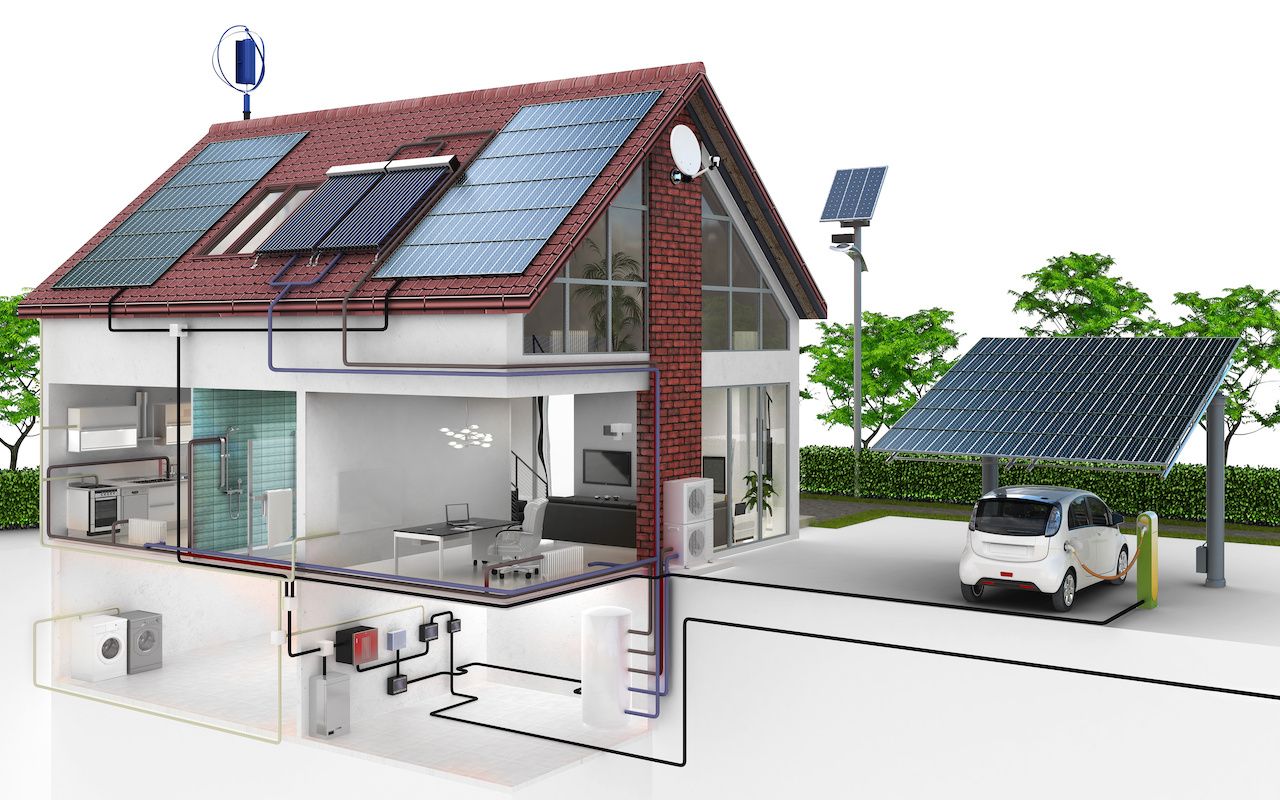
In an era defined by conscious consumer choices, the rise of energy-efficient appliances has changed the game in home management. Why does this matter? Well, energy efficiency is no longer a luxury but an essential part of sustainable living. Every year, millions are spent on utility bills, a significant portion of which is attributed to water heating. Traditional water heaters, especially the traditional electric water heater, have long reigned supreme in households. However, the age of the heat pump water heater is upon us, promising a brighter, more efficient future.
Heat pumps, by design, are a marvel of modern engineering. Instead of generating heat directly, they shift heat from one place to another, making the process vastly more energy-efficient. While heat pumps have been employed in space heating for years, their application in water heating is a relatively new yet groundbreaking innovation. Imagine having a device that not only provides you with hot water but does so using less electricity, ultimately saving on those dreaded electricity bills.
The heat pump water heater comes as a beacon of hope for homeowners looking for efficiency, sustainability, and cost-saving in one package. It embodies the principle of working smarter, not harder. In the sections to follow, we'll delve deeper into the mechanics, benefits, and considerations when it comes to these modern water heating wonders. Prepare to embark on a journey of discovery into the future of water heating, where efficiency meets innovation.
Join our newsletter
Stay on top of the latest in landscaping and lawn care with one valuable tip right in your inbox every Saturday morning.
What is a Heat Pump Water Heater?
The world of water heaters has seen immense advancements, and standing tall amidst the evolution is the heat pump water heater. But what sets it apart from its predecessors? Let’s dive in.
Breaking Down the Mechanics: How Heat Pumps Work in Steps
- Absorbing Warm Air: At the core of a heat pump's operation is its ability to pull in warm air from the surrounding environment. Unlike traditional methods that generate heat directly, a heat pump harnesses the existing heat in the surrounding air.
- Compression: Once absorbed, the warm air is compressed, raising its temperature. This process is made efficient with the use of a cold refrigerant, which, when coming into contact with the warm air, changes phase and gets hotter.
- Transferring Heat: This newly heated refrigerant then passes through coils that are in contact with the water tank. The heat from the refrigerant is transferred to the cold water inside the tank, warming it up.
- Releasing Cooler Air: After the heat transfer, the refrigerant, which is now cooler, expands and is released back into the surrounding room as cooler air. The cycle then repeats as needed.

Heat Pump Water Heaters vs. Traditional Electric Water Heaters
While both aim to provide households with hot water, their methods are where the stark difference lies. Traditional electric water heaters rely on electrical resistance to heat water directly, often consuming more electricity in the process. On the other hand, heat pump water heaters simply move the heat around using a fraction of the energy, making them substantially more energy efficient.
Moreover, where a conventional electric heater might struggle in colder climates, the heat pump water heater, with its ability to extract heat even from colder air, remains consistent in its performance. The end result? Not only do you get reliable hot water, but you also save considerably on your electricity bill.
The Energy Efficiency Advantage
In today's era of heightened environmental awareness, the term "energy efficiency" has taken center stage. But what does it really mean, especially when it comes to household appliances? And more importantly, how do heat pump water heaters play a pivotal role in this narrative?
Understanding "Energy Efficiency" in Household Appliances
Simply put, energy efficiency is about getting the maximum output with the minimum input. It's the art of maximizing the utility of an appliance while minimizing its energy consumption. When household appliances are energy efficient, they not only save money for the homeowner in the form of reduced electricity bills, but they also play a crucial role in lessening the strain on our planet's resources.
The Role of Heat Pump Water Heaters in Reducing Energy Consumption
- Less Energy, More Warmth: Unlike traditional water heaters that directly generate heat, heat pump water heaters harness the existing heat from the environment. This process requires significantly less electricity, giving you more hot water for your buck.
- Consistent Performance: Even in cold climates, heat pump water heaters operate efficiently, ensuring that households don't have to use additional energy sources for consistent hot water.
- Longevity Equals Savings: Due to their mechanism, these water heaters tend to have a longer lifespan compared to their traditional counterparts. This means less frequent replacements and, in the long run, fewer resources used in production.
- Lower Operating Costs: On average, homeowners can expect to spend about a third less on their utility bills when using a heat pump water heater compared to a conventional one.

The Broader Environmental Impact: Reducing Greenhouse Gas Emissions
The beauty of opting for energy-efficient appliances, particularly heat pump water heaters, goes beyond individual savings. When households across the globe make the switch, the collective reduction in energy consumption translates to fewer power plants burning natural gas or coal. This cascading effect leads to a significant reduction in greenhouse gas emissions — a major contributor to global warming.
In essence, by choosing a heat pump water heater, not only are you ensuring an efficient and cost-effective way of water heating, but you're also playing a part in the larger mission of creating a sustainable and environmentally-friendly future.
How Do Heat Pump Water Heaters Work?
The science behind heat pump water heaters might seem intricate, but once broken down, it's a beautiful synergy of physics and technology. Let's embark on this journey to comprehend their inner workings and understand why they're touted as a beacon of energy efficiency.
From Ambient Air to Hot Water: The Process Explained
- Harnessing the Surrounding Air: Everything begins with the surrounding air. A heat pump water heater absorbs this ambient warm air into the system.
- Refrigeration Cycle: Relying on the refrigerator pulls heat principle, the absorbed air is then passed over a coil system containing a refrigerant. This refrigerant 'pulls' the heat from the air, causing the refrigerant to evaporate and transform into a high-temperature gas.
- Generating Hot Water: This high-temperature gas now moves through a compressor, further elevating its temperature. As this superheated gas courses through a heat exchanger, it transfers its heat to the cold water in the storage tank. Thus, heating the water for household use.
- Completing the Cycle: After relinquishing its heat, the now cooler refrigerant changes back to a liquid state and returns to the evaporator coil, ready to start the cycle anew.

Heat Pump Water vs. Conventional Water Heating Methods
While conventional water heaters, be it gas-based or electric, generate heat directly for water heating, a heat pump water heater operates differently. Instead of directly generating heat, it moves the existing heat from the surrounding air into the water. This process of moving heat, rather than producing it, makes heat pump water heaters up to three times more energy efficient than their conventional counterparts.
The Importance of Surrounding Air and the Refrigerator Pulls Heat Principle
A unique facet of heat pump water heaters is their reliance on the environment. The surrounding air, be it from the furnace room, utility room, or outdoor air, plays a pivotal role. The principle upon which they operate is much like how a refrigerator works but in reverse. While a refrigerator pulls heat from its interior and dissipates it into the surrounding room, a heat pump water heater draws heat from its environment and transfers it to the water. This energy-efficient transfer ensures minimal electricity consumption, resulting in decreased electricity costs and a greener planet.
Benefits of Investing in a Heat Pump Water Heater
The growing popularity of heat pump water heaters isn't merely a trend. Their numerous advantages, ranging from economic to environmental, position them as a wise choice for homeowners. Let's explore the myriad benefits of making such an investment.
Cost Savings: Analyzing Operating Cost, Electricity Bills, and Long-Term Savings
- Operating Cost: One of the primary attractions of heat pump water heaters is their lower operating costs. Unlike traditional electric water heaters, they utilize the existing heat in the surroundings, thereby reducing the amount of electricity needed. Over time, this translates into significant savings.
- Electricity Bills: Your electricity bill is bound to see a noticeable dip when you switch to a heat pump water heater. On average, an average household can expect savings of up to a third on their bills, especially when compared to conventional water heating methods.
- Long-Term Savings: While the upfront cost of a heat pump water heater may be slightly higher than some traditional models, the long-term savings in terms of reduced electricity costs, potential tax incentives, and extended lifespan more than makeup for the initial investment. Over its life cycle, the savings can be substantial.
Eco-friendliness: The Reduction in Carbon Footprint
Heat pump water heaters are a boon for the environment. By harnessing existing warmth from the environment, they consume less electricity, which directly translates to fewer greenhouse gas emissions. For homeowners aiming to reduce their carbon footprint, these heaters are an environmentally friendly choice. Moreover, they contribute to the broader goal of reducing greenhouse gas emissions, making our planet a healthier place for future generations.
Join our newsletter
Stay ahead of the curve in all things outdoor.
Get the inside scoop on the latest landscaping, lawn care, and fencing trends with 1 actionable tip every Saturday morning.
Performance in Different Climates: Cold Climates vs. Warmer Regions
- Cold Climates: One might wonder about the efficiency of heat pump water heaters in cold climates. While they are most efficient in warm environments due to the abundant ambient heat, advancements in technology have made them viable in colder regions as well. They might rely more on their electric backup systems, but they still offer energy savings when compared to conventional water heaters.
- Warmer Regions: In warmer climates, heat pump water heaters shine the brightest. With an abundance of ambient heat, these heaters operate at peak efficiency, ensuring maximum savings on electricity bills and providing a consistent supply of hot water.
Comparing the Competition: Heat Pump Water Heaters vs. Others
The landscape of water heating has evolved significantly, with numerous technologies vying for the top spot in terms of efficiency, cost, and environmental impact. Among these, heat pump water heaters stand out, but how do they fare against other popular options?
Heat Pump Water Heaters vs. Tankless Water Heaters
Tankless water heaters, often celebrated for their compact size and instant hot water supply, have their set of pros. They heat water on-demand, ensuring no energy is wasted in maintaining a storage tank's temperature. However, when it comes to energy efficiency, heat pump water heaters have an edge. By harnessing existing ambient heat, they consume less electricity than the tankless variants, which heat water directly, often using natural gas or electricity.
The Efficiency of Solar Water Heaters and Geothermal Heat Pumps
Solar water heaters utilize the sun's energy to heat water. While they're eco-friendly and can significantly reduce electricity bills in sunny climates, their efficiency can wane on cloudy days or during winter months. In contrast, geothermal heat pumps tap into the Earth's steady underground temperatures to provide both space heating and water heating. They're incredibly efficient but come with a steeper upfront installation cost.
Heat pump water heaters, positioned between these two, offer consistent performance regardless of the weather, making them a more predictable choice for many homeowners.
Hybrid Water Heaters: The Best of Both Worlds?
Hybrid water heaters combine the principles of traditional storage water heaters and heat pumps. While they utilize the ambient heat for most of their operations, they can switch to conventional electric heating during peak demand times. This ensures a consistent supply of hot water even during times when ambient heat isn't sufficient. For many, they strike a perfect balance between energy efficiency and reliability.

Comparing the Competition: Heat Pump Water Heaters vs. Others
The landscape of water heating has evolved significantly, with numerous technologies vying for the top spot in terms of efficiency, cost, and environmental impact. Among these, heat pump water heaters stand out, but how do they fare against other popular options?
Heat Pump Water Heaters vs. Tankless Water Heaters
Tankless water heaters, often celebrated for their compact size and instant hot water supply, have their set of pros. They heat water on-demand, ensuring no energy is wasted in maintaining a storage tank's temperature. However, when it comes to energy efficiency, heat pump water heaters have an edge. By harnessing existing ambient heat, they consume less electricity than the tankless variants, which heat water directly, often using natural gas or electricity.
The Efficiency of Solar Water Heaters and Geothermal Heat Pumps
Solar water heaters utilize the sun's energy to heat water. While they're eco-friendly and can significantly reduce electricity bills in sunny climates, their efficiency can wane on cloudy days or during winter months. In contrast, geothermal heat pumps tap into the Earth's steady underground temperatures to provide both space heating and water heating. They're incredibly efficient but come with a steeper upfront installation cost.
Heat pump water heaters, positioned between these two, offer consistent performance regardless of the weather, making them a more predictable choice for many homeowners.
Hybrid Water Heaters: The Best of Both Worlds?
Hybrid water heaters combine the principles of traditional storage water heaters and heat pumps. While they utilize the ambient heat for most of their operations, they can switch to conventional electric heating during peak demand times. This ensures a consistent supply of hot water even during times when ambient heat isn't sufficient. For many, they strike a perfect balance between energy efficiency and reliability.
Potential Challenges and Considerations
When considering the switch to a heat pump water heater, it's essential to weigh the advantages against some potential challenges. Let's delve into some common considerations homeowners face when deciding on this energy-efficient solution.
Initial Investment: Understanding Upfront Cost and Installation Costs
Heat pump water heaters generally have a higher upfront cost compared to traditional electric water heaters. This initial investment includes not just the price of the unit but also the installation costs. Homeowners should consider factors like potential tax incentives or federal tax incentives that can offset some of these expenses. Additionally, the significant savings on electricity bills over time can make this initial investment well worth it.
Space Considerations: Utility Room and Surrounding Room Temperatures
A heat pump water heater requires a certain amount of air space to operate efficiently. Typically, they are best suited for a utility room or furnace room with an ambient temperature range that the heater can leverage. The surrounding room temperature plays a pivotal role in the heater's efficiency. It's important to ensure the chosen location remains consistent in temperature, and the unit has adequate space to draw in ambient air.
Maintenance and Longevity: What Homeowners Need to Know
Like all water heaters, heat pump water heaters require maintenance to ensure longevity and optimal performance. Periodic checks, cleaning the water tank, and inspecting for any issues can help prolong the life of the unit. Additionally, understanding the specifics of your heat pump water heater, such as its energy factor and recommended maintenance schedule, can aid in keeping it running smoothly for years.
The Future of Water Heating
In an era that demands energy efficiency and environmental responsibility, heat pump water heaters stand out as a beacon of innovation and promise. These units represent the future of energy-efficient homes, intertwining technology with sustainability. Their capability to convert ambient air to hot water in an energy-saving manner underlines their significance in the pantheon of household appliances.
The shift towards heat pump water heaters isn't merely a trend—it's a much-needed transition. Our reliance on traditional methods of water heating has highlighted the urgent need for sustainable, cost-effective solutions. With the mounting concerns about our carbon footprint and the global call for sustainable living, embracing heat pump water heaters isn't just about reducing utility bills; it's about creating a brighter, greener future.
As homeowners, stakeholders, and global citizens, our choices matter. By choosing to invest in heat pump water heaters, we are not only ensuring energy efficiency in our homes but also taking a step towards a sustainable and environmentally conscious future. It is a clear indication that the future of water heating is not just about providing hot water, but about doing it in a way that is in harmony with our planet.
Join our newsletter
Stay ahead of the curve in all things outdoor.
Get the inside scoop on the latest landscaping, lawn care, and fencing trends with 1 actionable tip every Saturday morning.